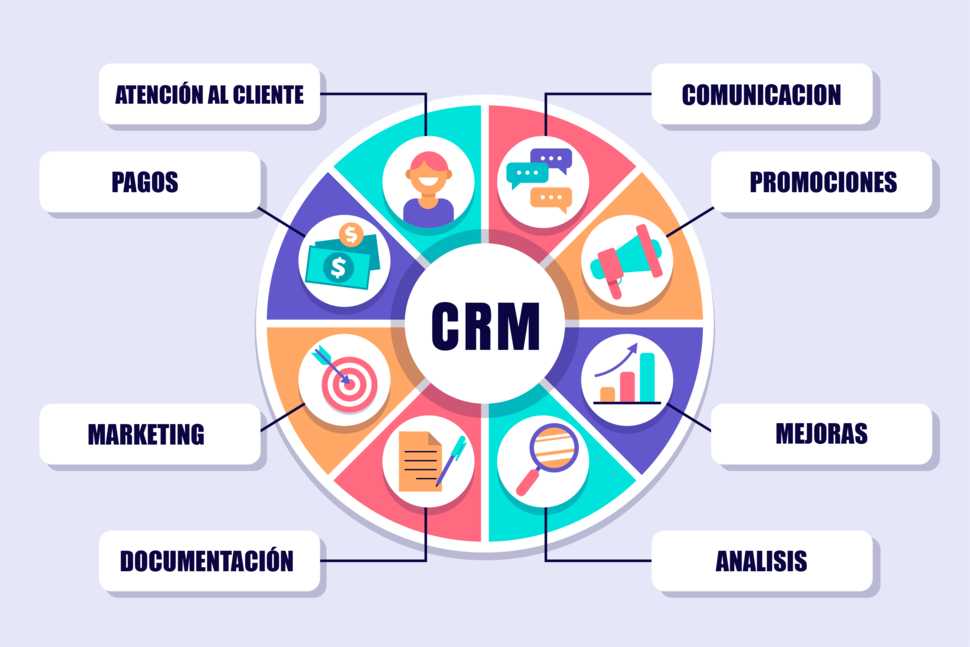The way people research, compare, and shop have changed dramatically in the last five years. The days of buyers simply talking to their sales representative or meeting suppliers at an industry event are disappearing.
In this new environment, traditional approaches cannot be trusted. By contrast, Customer Relationship Management (CRM) must be flexible, intuitive, and collaborative to succeed.
Key CRM Trends in the Next 5 Years
In the coming years, we are likely to see several new trends emerge. Here we list what they are:
1) Align Sales, Marketing, and Operations around Common Goals
A cohesive combined effort with these core departments will help ensure teams meet KPIs and short- and long-term goals.
Operating in sync ensures that each area of the business contributes to the end goal and supports each other and, most importantly, the customer. Once this happens, the CRM platform can show how departments support consumers at each point of the sales funnel.
2) New Definitions of Sales and Marketing
Both teams must work together to establish key parameters, such as the ideal customer profile and what is considered a quality lead.
From there, the marketing department must quickly and easily provide pre-qualified lead profiles to the sales team. And these have to be notified so that they can carry out a follow-up within the SLAs. CRM platforms are of great help here due to the automation and ease of filtering the target information.
3) Customer First, Not Company First
The latest generation of CRM systems is designed to focus on “customer first, not company first.” This means focusing on customer retention and highly personalized experiences. Although these trends are recurring in previous years, they will continue to be key in the coming years:
- Customer Retention: With all the data available, there’s no excuse for not having a full 360º view of customers. Today’s CRM systems should instantly provide teams with user information. For example, when a consumer talks to customer service, they feel valued, they don’t need to repeat what happened to them, and the agent can empathize and help resolve any queries.
- Personalized Experiences: As we have mentioned, the experience that a company provides is just as important as its products or services. While CRM platforms have proven essential for sales teams, marketers are a bit behind. This is changing. With the ability to monitor interactions and how CTAs convert, the data provides insights to improve campaigns overall. In the future, any business using a CRM needs to take advantage of the customer behavior data it accumulates to offer more personalized interactions.
4) Easy-to-use and Mobile-ready CRMs
CRMs have long struggled to gain acceptance from sales professionals. Traditionally, CRM systems have been extremely complex and difficult to set up. Fortunately, some CRM systems now focus on software that is easy to set up and use.
Mobile compatibility is moving from a “nice to have” to a “need to have”, allowing teams to update and access the system on the go.
5) Artificial Intelligence (AI) Functionality
Artificial Intelligence (AI) is becoming increasingly essential for both sales and marketing.
The good news is that we are starting to see Artificial Intelligence being integrated into CRM systems. This added functionality promises to enhance, not replace, the human component of sales. Professionals in this department will use AI to complement their skills and efforts.
AI has the ability to reduce manual data entry, centralize disparate databases, and capture the entire customer lifecycle. In addition, it can also detect data irregularities, anomalies, duplicates, and other errors that compromise CRM data.
Finally, Artificial Intelligence could support predictive lead qualification to ensure contacts are ready when they are transferred to sales for follow-up.
In conclusion, in the coming years, CRM will play an increasingly important role in organizations. That’s why it’s important to choose a CRM that empowers sales reps, provides a complete picture of the customer journey, and adapts to changing needs.
 Subscribe
Subscribe
 Ask for a demo
Ask for a demo

 3 min
3 min
